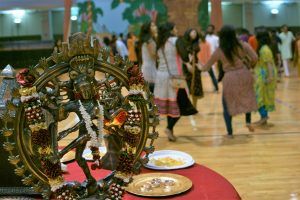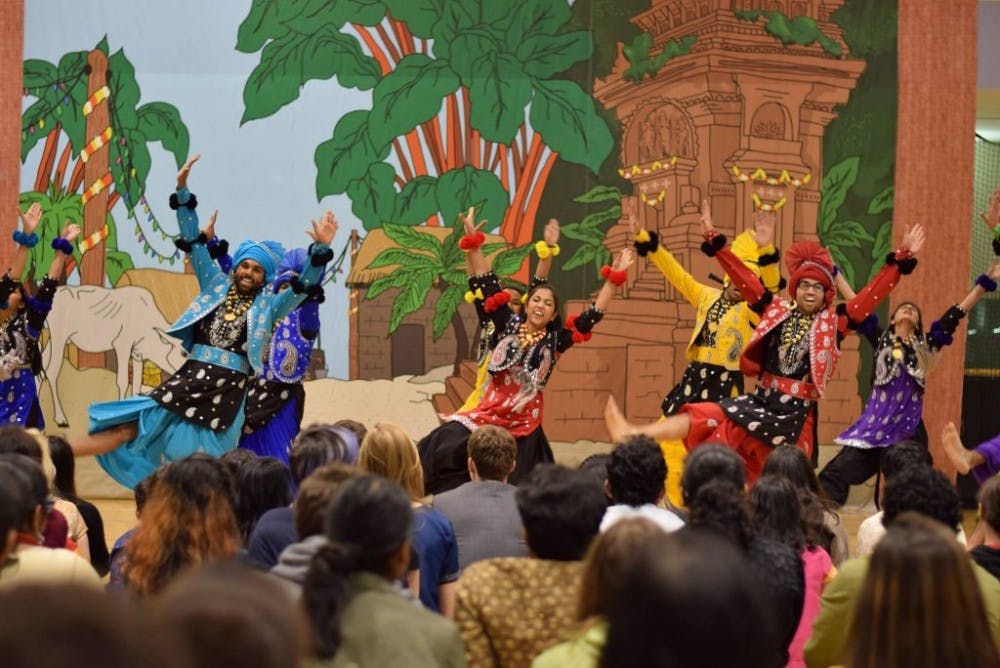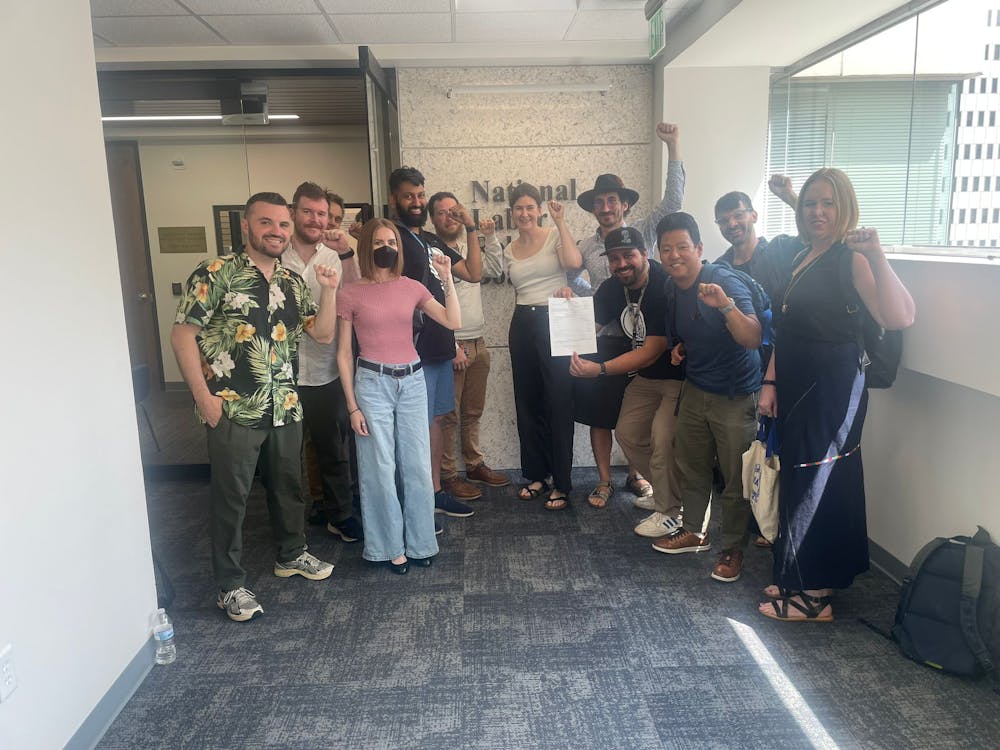The Hopkins Hindu Student Council (HSC) hosted Diwali Dhamaka in the Rec Center to celebrate this year’s festival with the Hopkins community. The event took place on Saturday evening, Oct. 8.
Diwali, translated from Hindi as “festival of lights,” is a five-day ancient Hindu festival celebrated in autumn. It signifies the triumph of light over darkness and hope over despair. It is celebrated in India, Nepal and several other countries with Indian populations.
Rituals include fireworks, a feast and the lighting of candles or lanterns which are then placed on rooftops, in temples and outside doors and windows.
HSC’s Interfaith Center Representative, junior Vignesh Sadras, spoke about how Diwali is meant to bring the community together.
“The main aspect of this festival is to celebrate the victory of unity over separation, and that’s embodied in so many different ways and that’s practiced in a lot of different cultures in different ways. So that’s the core of this festival,” Sadras said. “The main motive that gave us the energy to do this is that we see this event as a way to bring the community together, because it’s not really restrictive to a certain religion or culture. It’s a celebration of light over darkness and unity over separation.”
Freshman Sindhu Banerjee, who is also an HSC member, elaborated on the significance of the event to both the student body and Indian Americans at Hopkins.
“The first purpose is to get the whole community aware — meaning that even if you’re Hindu, come celebrate with us, come enjoy the festival of lights, come get some great food and come watch some great performances. And the second one is kind of like sharing our inner culture,” Banerjee said. “The festival of lights is showing this true light inside of you. For example, the phrase ‘namaste’ means ‘the light in me bows to the light in you,’ so we’re kind of sharing that as well. That’s our secondary goal.”
This year’s Diwali Dhamaka featured a free dinner, open dancing, sparklers and a photo booth. Activities included demonstrations on how to tie a pagdi, which is the traditional Sikh turban, and how to tie a sari, a draped garment worn by women.
The University’s Indian dance groups, including Blue Jay Bhangra, JOSH, Zinda, Shakti and South Asian fusion a cappella group Kranti also performed at the event.
Junior Pratyush Trivedi, who is in his third year of performing with Blue Jay Bhangra, said that he loves this event in particular because of the large audience and its ability to unite India’s different cultures. India has numerous unique regions throughout the country, all with different traditions, customs and languages.
“Bhangra is part of the Punjab..., which is a specific region of India, but all the events we have going here, all the different dances and performers, represent different parts of Indian culture. But one of the things that unifies us is this festival. That’s the reason we’re here; That’s why all the different Indian groups are doing their own thing here,” Trivedi said.
Junior Deesha Bhaumik is a member of Shakti, which is the first competitive Indian classical dance team at Hopkins. She enjoys performing and watching the other dance groups.
“Traditionally it’s a fun event, there’s a lot of dancers, so since we’re the Indian dance team, it’s just like a normal thing that we would do. We do it every year,” she said.
In addition to performances by dance groups, there were class dance performances by the freshman, sophomore, junior and senior classes. Sophomore Rahul Naik spoke about the class dances.
“They’re not dance teams. They took their own time and energy to put together dance routines,” Naik said.

Reactions to the event were positive, with students saying that they were drawn to it because of the free food or because they wanted a chance to celebrate the holiday while in college.
“I’m Hindu and it’s part of my culture. When I’m at college I don’t really get to experience that much of my culture as I did at home, so I like to come here and see everyone celebrating. It’s a good event to come to,” sophomore Shipra Khatri said. “Being at home I get to be with my parents, so like obviously with my family it’s different. But I like it here because I get to experience it with my friends, which is something I don’t get at home.”
Freshman Erika Bhadra echoed the sentiment.
“My dad is Indian, so I’ve definitely been to events like this at high school and before that as well, and to do this at college was pretty cool too,” she said. “[A]t home [Diwali] is usually a group event where everyone dances, not really like having different groups perform. But seeing here how people put time and effort into choreographing dance routines, that was interesting. So it was different in that aspect, but pretty similar in terms of everything else.”
Other students who were not familiar with the cultural context wished that there was more information geared towards educating people about the festival.
“I wish there was a little more information about Diwali. I don’t know if there is, if I’m just not seeing it, but it’s cool that they’re educating people that Diwali exists,” senior Lydia DuBois said.
Sophomore Anastasia Miller thought the event helped her become more culturally aware.
“I don’t think there was that much education on their side but I kind of brought somebody that I know that has more of an understanding of it and I feel like at least on my end I’ve got a bit more of a cultural influence,” she said.





